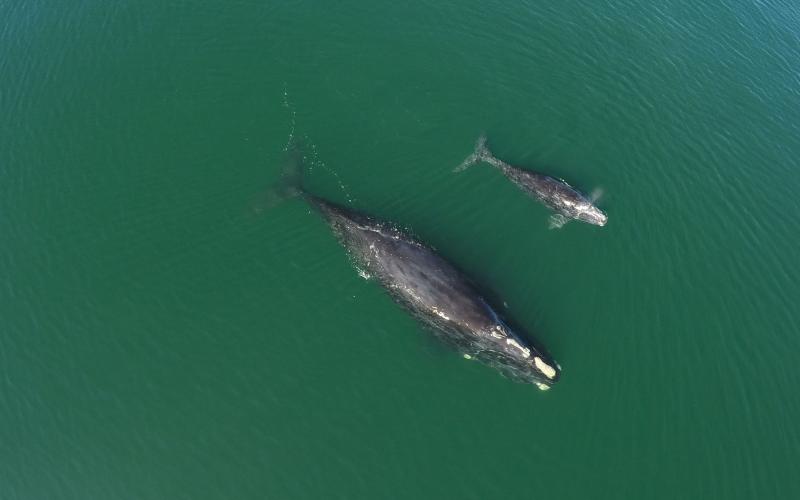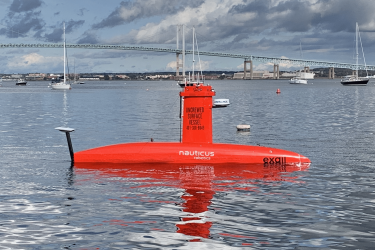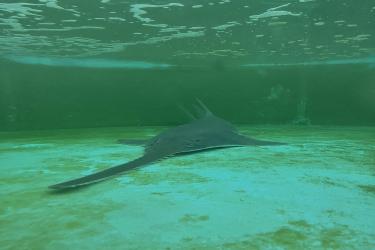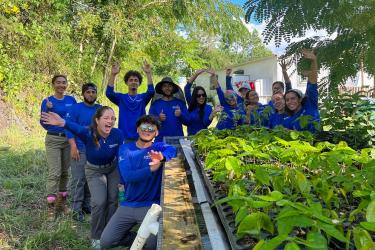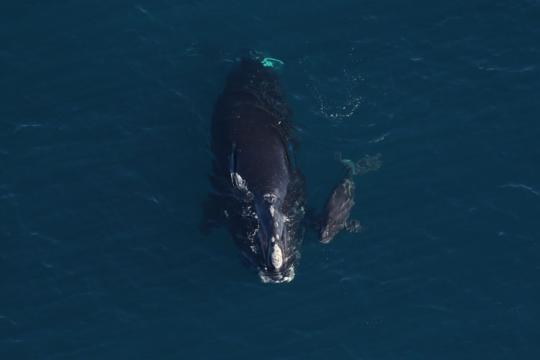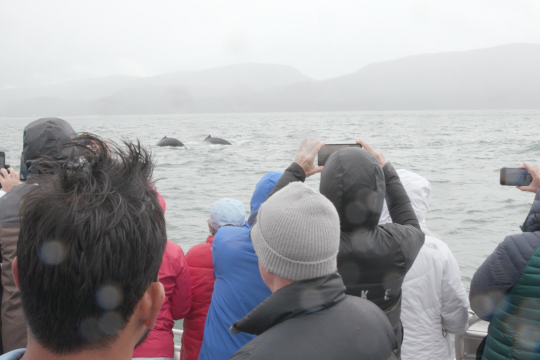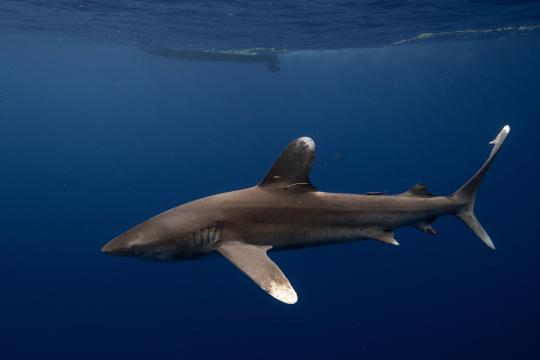In support of our shared interest in protecting and recovering North Atlantic right whales, we held our first biannual meeting of 2021 with officials from NOAA Fisheries and Oceans Canada and Transport Canada last Thursday. Fisheries’ Deputy Assistant Administrator for Regulatory Programs, Sam Rauch, and our Regional Administrator for the Greater Atlantic Regional Fisheries Office, Mike Pentony, joined me for this virtual meeting.
Clearly, it is crucial for both countries to take and sustain additional efforts to reduce right whale mortalities and serious injuries. Protecting and conserving these endangered whales is especially important given the rapid decline in the population in recent years. There is evidence of a continued high rate of mortality and an ongoing Unusual Mortality Event. And while we had at least 18 North Atlantic right whale calves born this year, a recent scientific paper highlighted the strong link between natural and human-induced factors—such as entanglement—and smaller North Atlantic right whales.
As in previous meetings on this topic, both sides agreed to share innovative techniques and solutions that foster healthy fisheries, reduce the risk of entanglements, and create whale-safe maritime practices. Both countries gave updates on current and future risk reduction measures, including vessel strike reduction efforts. We also continued our discussions of the measures both countries can take throughout the species’ range to further reduce risks.
It is essential that both the United States and Canada implement sustainable, long-term measures to turn the population trajectory of right whales upward and recover this species. As a newcomer to these discussions, I was pleased with Canada’s willingness to share information and seek common ground. It’s important to continue these bilateral efforts to help achieve our shared goals of conserving and restoring this species. As we have said before, the United States, especially the commercial fishing industry, cannot carry the full burden of these efforts. It has to be a shared responsibility. Our partners and stakeholders continue to look to the U.S. and Canadian governments to save this endangered species, and this is one of the ways we can deliver.
Paul Doremus
Acting Assistant Administrator, NOAA Fisheries
